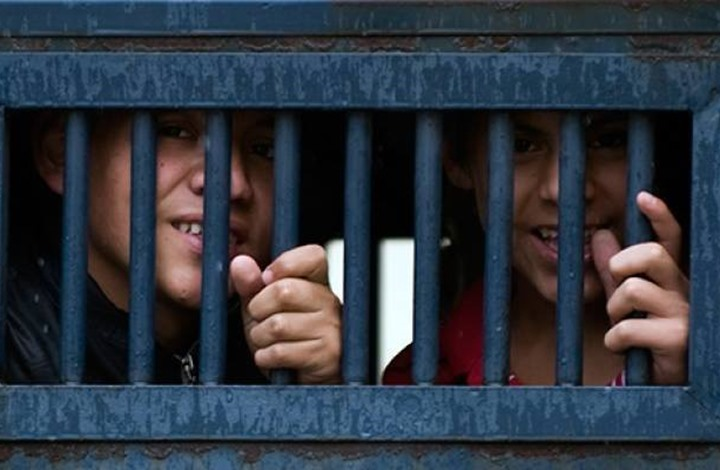
The European Saudi Organization for Human Rights confirmed that the Saudi authorities are not serious about implementing the juvenile system and respecting the Convention on the Rights of the Child.
In a statement, the organization appealed to the Public Prosecution Office in Saudi Arabia to dissolve punishment against the minor Youssef Al-Manasif and five others, including a minor Sajjad Al-Yassin.
The six have been subject to a mass trial in the notorious Specialized Criminal Court since September 20, 2019, and so far, a preliminary ruling has not been issued against them.
Yousef Al-Manasif ( born on September 8, 1996) was arrested on April 6, 2017, near Qatif Court in violation of local regulations.
Suddenly, while he was walking in the street, Saudi security forces pointed a weapon in his face and took him to prison without presenting an arrest warrant or informing him of the reasons. He was then 20 years and six months old.
His family was informed of his arrest and transfer to the General Investigation Prison in Dammam. However, They were not allowed to see or visit him for over six months after his arrest, during which he remained in solitary confinement and isolated from the outside world. In mid-October 2017, the prison administration allowed his family to visit.
During the detention period, Yousef Al-Manasif was subjected to severe physical torture, which led to him losing consciousness and being hospitalized. The torture also caused him health complications and back pain.
He underwent examinations at the Security Forces Hospital but did not receive their results, pictures, or medical reports. The prison administration did not allow his family to visit him until after he was forced to sign confessions, which the Public Prosecution Office used against him later in court as evidence of the charges brought against him.
The Public Prosecution charged him with several charges, most of which were during his childhood. Among them: Participation in the funerals of some people who were shot dead by the security forces in demonstrations and raids.
One charge was when he was 15 years old, and another when he was 16 years old, in addition to “participating in rioting demonstrations and gatherings, chanting slogans, raising anti-state slogans, seeking to stir up sedition and division, and destabilizing security, seeking to destabilize the social fabric and national cohesion.”
He was also charged with “participating in and inciting sit-ins, demonstrations and gatherings that affect the unity and stability of the Kingdom, joining a terrorist cell, monitoring security men and shooting them, selling narcotic pills to three security men, and covering up wanted persons.”
The prosecution also charged him with financing terrorism and terrorist acts by relying on his statements, which stipulate receiving, transporting and handing tires to riot sites.
The Public Prosecution did not present any evidence of the charges against the minor Youssef Al-Manasif, except for the statements before the court that they were extracted from him under torture.
Yousef Al-Manasif was deprived of his basic right to a lawyer for the duration of the investigation and pretrial detention that extended to 29 months, in flagrant violation of local regulations and fair trial conditions.
The European Saudi Organization for Human Rights confirmed that the government’s continued demand for the execution of the minor Youssef Al-Manasif indicates its lack of seriousness in implementing the juvenile system and its non-compliance with the Convention on the Rights of the Child.
The organization highlighted that Al-Manasif had been subjected to massive and grave violations since his arrest. Therefore the Public Prosecution’s demand to kill him under these circumstances is equivalent to complicity in torture and a cover-up for government criminals.
The organization explained that Saudi Arabia employs strict religious understandings to justify the execution of children in unfair trials that lack conditions of justice by relying on non-serious accusations, some of which are basic rights that are not classified as crimes in international law.
The organization noted that besides Youssef, the organization was able to monitor 4 other cases of minors facing the death penalty. The data indicate that other minors face a similar fate, but the lack of transparency in the Saudi government’s handling of the execution file prevents its documentation.